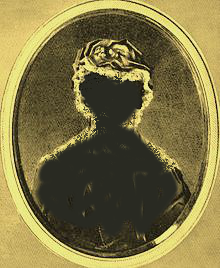If Shakespeare had kept a diary there would arguably be far fewer books written about him.

If we knew for instance
- What he got up to during the ‘missing years’
- How he got to leave his home in Stratford and fetch up as an actor/playwright in London
- How much of the 37 plays he actually wrote
- Whether Shakespeare was Shakespeare or someone else
- Who the Dark Lady of the sonnets was
- Whether or not he got on with his wife
- Etc etc etc
We wouldn’t need to endlessly speculate. And it would not be half as much fun.
~~~~~~~~~~~~
What will people say about you when you’re gone?
Diary-less ancestors tend to be remembered for what they did rather than what they might have said. Or rather for what they did that made the public records. So we are likely to know more about men than women, especially if they played a prominent part in society. We may also know more about the ones who got into trouble, and the ones with police records, especially if they ended up in Australia.

As a family historian I’d have given anything for my ancestors to have kept diaries so I knew exactly why my four times great grandmother decided to emigrate to a penal colony.
On the other hand lacking the facts gives one scope for one’s imagination; so what would have been a case of simple transcribing becomes something rather more creative. The challenge of filling in the gaps while remaining as true as possible to the character you think your four times great grandmother was, for instance, is a fascinating one.
A certain amount of mystery is no bad thing.
If you want to read the story of my pioneering Australian ancestress please click here: The Worst Country in the World.
~~~~~~~~~~~~~~~~~
Who was Claudia Faraday?

Claudia kept a detailed diary of a crucial period in her life when she made a discovery that altered her entire outlook on life and on the people in it. The fact that she kept this diary in her loft, to be discovered by generations to come, suggests to me she wanted them to be found, and to be published.
Nonetheless such was the intimate nature of the diary I went to great lengths to protect her reputation by not just changing her name but the names, and some details, of her daughters and her friends, and a few other bits and pieces beside.
So I defy anyone to identify her.
If you’d like to read her story click here: The Unlikely Adventures of Claudia Faraday.
Have you kept a diary?
I have, from time to time. It makes for hilarious and sometimes embarrassing reading. It is also a handy reminder of the person you once used to be, and if you think – as I often have – you are still an eighteen-year-old wrapped up in a middle-aged woman’s body, it is good to be reminded that, actually, you aren’t.
But I wouldn’t want anyone to read them, no way. Unlike Claudia I will make a point of destroying them before I pop my clogs.

Geniaus Gems led me to your blog. Yes it’s interesting to think about isn’t it? Like you I have kept diaires….one from when I was 10 was even written in code….most days I wrote rather sagely – “Nothing” so it’s pretty easy to figure out the code. Letters provide a great insight too. I have a wordpress account but you might want to visit my blogspot account too to see what has fallen into my lap. http://www.familytreefrog.blogspot.com.au
Writing in code is a good idea, so long as you can remember what the code is…